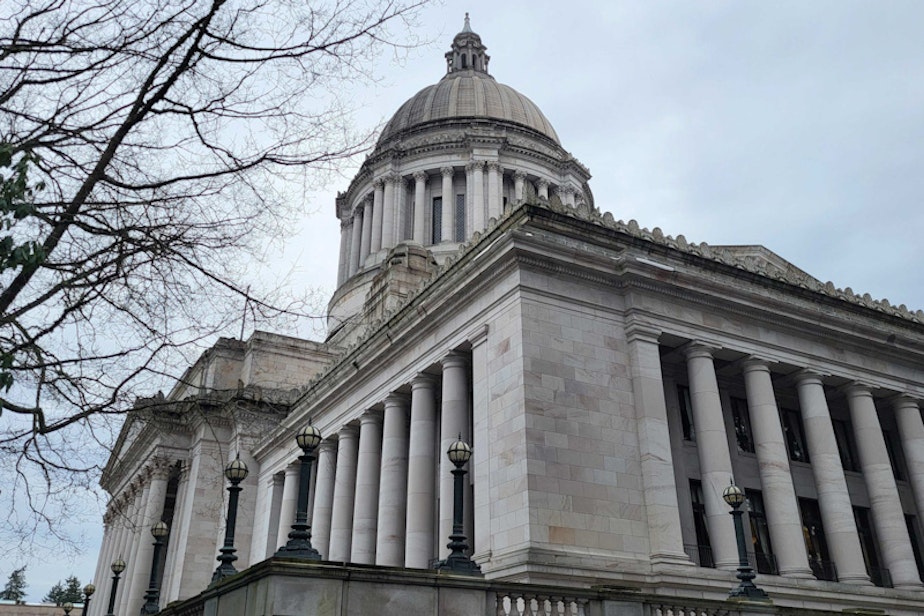Washington's legislative maps were challenged by someone who helped draw them

In Washington state, every 10 years, a bipartisan commission takes the latest census data and negotiates over district lines that determine who you vote for.
The latest round of maps was finished in 2021 – but from the jump, the 15th District faced legal challenges. In an unusual twist, it turns out one of those challenges was orchestrated by someone responsible for drawing the map in the first place.
The redistricting process in 2021 was mired in negotiations. The key issue was deciding the legislative districts in the Yakima Valley, where Latino voters asked the redistricting commission to consolidate their voting power in the region, saying their power was diluted by previous and currently proposed maps.
According to the Federal Voting Rights Act of 1965, states are required to ensure their political processes are equally open to participation and free from discrimination based on race, color, or language.
Elsewhere around the country, legislative maps were recently challenged when the power of Black voters was diluted in Alabama's latest legislative maps, a case that went before the U.S. Supreme Court last year, and which was decided in favor of redrawing diluted districts.
Democrats on the commission consulted an expert from UCLA, who said that, to comply with the Federal Voting Rights Act, a district needed to be drawn that has at least a 60% Latino voting population. The final map submitted in November 2021 left that percentage closer to 50%, and a legal challenge against vote dilution was filed months later.
At the same time, Paul Graves, formerly an elected representative in the State House, and one of the two Republicans on the redistricting commission, was concerned the legal pushback would undo years of redistricting negotiations. In consultation with Republicans at the state and national level, including a redistricting strategy entity, they determined changes to the maps could result in a stronger outcome for Democrats in a district long held by Republicans.
Sponsored
Graves worked with an upstart congressional candidate, Benancio Garcia, to file a lawsuit against the maps alleging that redrawing them would discriminate against the voting power of non-Latinos in the Yakima Valley. Essentially, the Garcia v Hobbs case argued that redrawing the lines in favor of Latino voters would be a form of racial gerrymandering.
"I found it highly unusual, and I've been looking at redistricting cases all over the country, trying to get inside them and look at what's going on behind the scenes that nobody ever really knows," said Marilyn Thompson, who covered the story for ProPublica.
Through sworn depositions, court documents, texts, and emails, Thompson said Graves defended the counter-suit as a defense of the carefully negotiated maps drawn by the commission.
But ultimately, Washington District Court Judge Robert Lasnik ruled in favor of redrawing. Garcia's case was then rendered moot, after which an attempt was made to appeal the case the U.S. Supreme Court, who declined to hear it. It is unclear if it will be appealed to the 9th Circuit Court of Appeals.
Conservatives in recent years have made the case that race should not play a role at all in the redistricting process, unless there is clear evidence of intentional discrimination taking place. In 2013, the Supreme Court removed a key provision of the Voting Rights Act that requires preclearance for maps in certain states with a history of racist voting laws (that was section five, decided in Shelby County v Holder).
Sponsored
Garcia v Hobbs is one of many cases across the country taking on section two of the Voting Rights Act, which says that a minority group deserves fair representation.
"It's almost like, who can bring the case that will finally get the court to sit up and take notice and make a ruling against section two?" Thompson said. "That seemed to have been the logic of the Garcia lawsuit."
In the meantime, a special master was appointed to redraw Washington's legislative map. So far, five maps have been proposed, and a decision on them is expected by the end of March to meet the requirement they be locked in ahead of the next election of 2024. Latino voters in the Yakima Valley used the previous, now-discriminatory map in 2022 elections.
You can read Marilyn Thompson's full report on the issue by clicking here.
You can listen to the full Soundside interview by clicking the play button at the top of this story.





